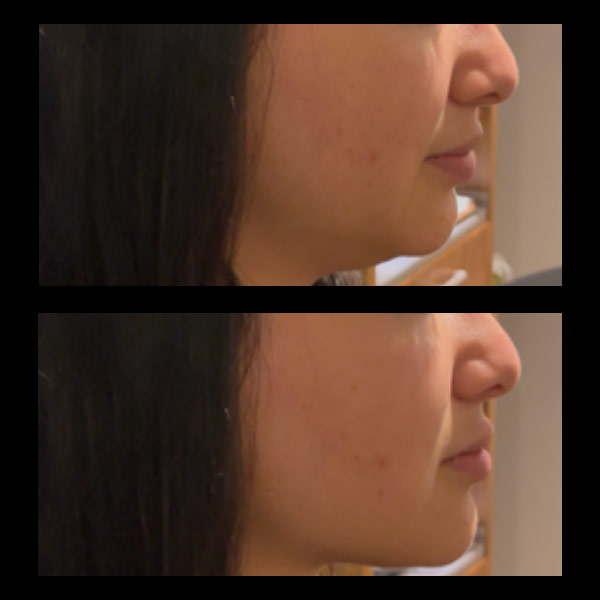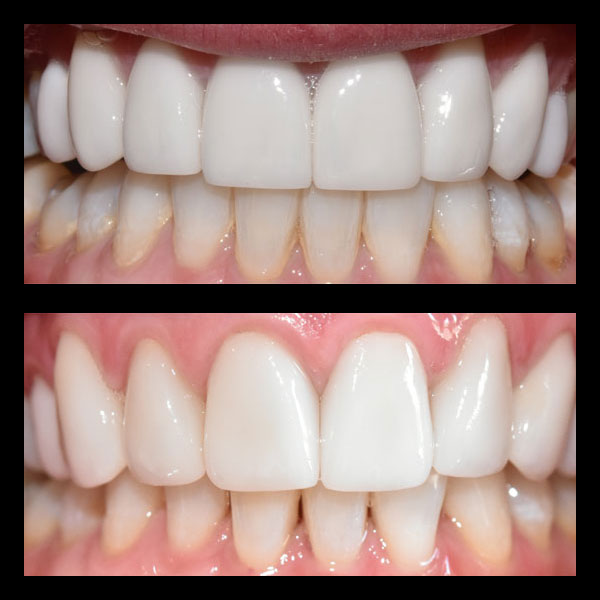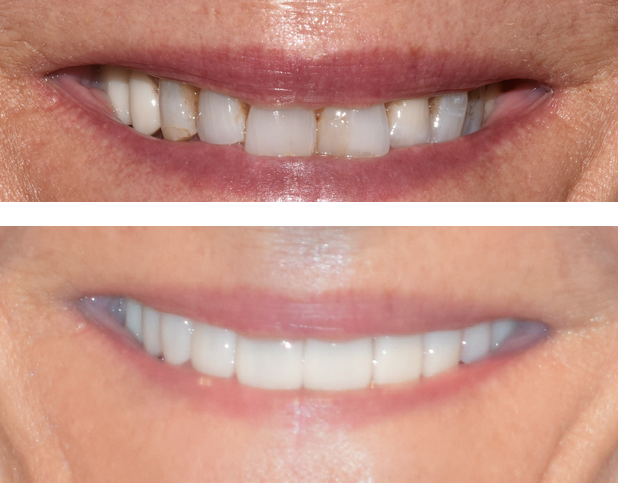Understanding and Alleviating Post-Whitening Tooth Sensitivity
A bright, white smile is a goal for many, and professional teeth whitening is a popular and effective way to achieve it. At Incredible Smiles in Boulder, we love helping our patients achieve their dream smiles. However, one common concern associated with teeth whitening is tooth sensitivity. While typically temporary, this sensitivity can cause discomfort. Understanding why it happens and how to manage it can make your whitening experience much more pleasant. This guide offers practical tips and solutions for dealing with post-whitening tooth sensitivity, ensuring your journey to a brighter smile is as comfortable as possible.
The team at Incredible Smiles is dedicated to providing not only stunning cosmetic results but also ensuring your utmost comfort throughout any procedure, including teeth whitening in Boulder.
Why Does Tooth Sensitivity Occur After Whitening?
Teeth whitening products, whether administered in-office or used at home, typically contain active ingredients like hydrogen peroxide or carbamide peroxide. These agents work by penetrating the tooth’s enamel, the hard outer layer, to break down stains and discoloration within the dentin, the softer layer beneath the enamel.
This process, while effective for lightening tooth color, can temporarily increase tooth porosity and expose microscopic tubules within the dentin. These tubules lead to the tooth’s nerve (pulp). When exposed, external stimuli like hot, cold, or sweet substances can more easily reach the nerve, triggering a sensation of discomfort or pain. This is known as dentin hypersensitivity.
The degree of sensitivity can vary greatly from person to person, influenced by factors such as the concentration of the whitening agent, the duration of exposure, pre-existing tooth sensitivity, enamel thickness, and individual pain tolerance. Fortunately, this sensitivity is usually short-lived, often subsiding within a few hours to a couple of days post-treatment.
Immediate Post-Treatment Care for Whitening Sensitivity
What you do immediately after your teeth whitening session can significantly impact any potential sensitivity. Proper post-treatment care is crucial for comfort and for maintaining your newly brightened smile.
1. Avoid Extreme Temperatures
For the first 24-48 hours, your teeth will be more susceptible to temperature changes. Steer clear of very hot or very cold foods and beverages, such as ice cream, iced drinks, hot coffee, or soup. Opt for lukewarm options instead.
2. Steer Clear of Acidic and Sugary Foods
Acidic foods and drinks (like citrus fruits, tomatoes, vinegar-based dressings, sodas) can exacerbate sensitivity and potentially harm temporarily vulnerable enamel. Sugary foods can also contribute to discomfort. Stick to a “white diet” for a day or two if possible – think plain chicken, rice, pasta, and potatoes.
3. Stay Hydrated
Drinking plenty of water helps to keep your mouth clean and can reduce sensitivity. It also helps to neutralize acids in the mouth.
4. Gentle Oral Hygiene
Brush your teeth gently using a soft-bristled toothbrush and lukewarm water. Avoid aggressive brushing, which can further irritate sensitive teeth and gums.
Effective Home Management Strategies for Whitening Sensitivity
If you experience tooth sensitivity after whitening, there are several effective measures you can take at home to find relief:
Use Desensitizing Toothpaste
Toothpastes formulated for sensitive teeth often contain compounds like potassium nitrate, stannous fluoride, or strontium chloride. These ingredients help block the transmission of sensation from the tooth surface to the nerve. Consider using a desensitizing toothpaste for a week or two before your whitening treatment and continue using it afterwards.
Practice Gentle Oral Hygiene
As mentioned, use a soft-bristled toothbrush and brush gently. Avoid over-brushing or using too much force. Consider an electric toothbrush with a pressure sensor if you tend to brush too hard.
Fluoride Rinses or Gels
Fluoride helps to strengthen tooth enamel and can reduce sensitivity. Your dentist at Incredible Smiles may recommend an over-the-counter fluoride rinse or prescribe a higher-concentration fluoride gel for home use, especially if you are prone to sensitivity.
Avoid Over-Whitening
While the desire for dazzlingly white teeth is understandable, over-whitening can lead to increased and prolonged sensitivity, and even damage your enamel. Always follow the recommended treatment frequency and duration provided by your Boulder dental professionals or the product instructions.
Warm Saltwater Rinse
Rinsing your mouth with a warm saltwater solution (half a teaspoon of salt in a cup of warm water) can help to soothe inflammation and reduce sensitivity. Swish gently for about 30 seconds and spit out. Do this a few times a day if needed.
For ongoing concerns about sensitivity or overall oral health, exploring options like general dentistry services in Boulder can provide comprehensive care and advice.
Professional Solutions for Tooth Sensitivity at Incredible Smiles Boulder
If home remedies aren’t providing enough relief, or if you have concerns about sensitivity before undergoing whitening, it’s best to consult with your dentist. At Incredible Smiles in Boulder, we offer several professional solutions:
Pre-Whitening Consultation and Assessment
Before any smile makeover procedure, including teeth whitening, we conduct a thorough examination to assess your oral health. This helps us identify any pre-existing conditions like cavities, gum recession, or cracks that could contribute to sensitivity. We can then tailor the whitening process to minimize your risk.
In-Office Desensitizing Treatments
We can apply professional-grade desensitizing agents, such as special gels or varnishes, to your teeth either before or after the whitening treatment. These products work quickly to block the dentinal tubules and provide immediate relief.
Customized Whitening Trays
For at-home whitening kits, we provide custom-fitted trays. These trays ensure that the whitening gel is applied evenly and stays confined to the tooth surfaces, minimizing contact with sensitive gum tissue, which can reduce overall sensitivity.
Adjusting Whitening Protocols
If you are known to have sensitive teeth, we can adjust the whitening protocol. This might involve using a lower concentration of whitening agent, reducing the application time, or spacing out whitening sessions more widely. Our advanced technology and expertise allow for this personalized approach.
Do’s and Don’ts for Managing Post-Whitening Sensitivity
| Do’s | Don’ts |
|---|---|
| Use desensitizing toothpaste before and after whitening. | Consume extremely hot or cold foods/drinks immediately post-treatment. |
| Brush gently with a soft-bristled toothbrush. | Use abrasive toothpastes or whitening toothpastes immediately after professional whitening. |
| Stay well-hydrated by drinking plenty of water. | Consume highly acidic or sugary foods and drinks for 24-48 hours. |
| Follow your dentist’s post-treatment instructions carefully. | Overuse whitening products or whiten more frequently than recommended. |
| Contact your Boulder dentist if sensitivity is severe or persists beyond a few days. | Ignore persistent or severe pain; it could indicate an underlying issue. |
| Consider using a straw for beverages to bypass sensitive teeth. | Smoke or use tobacco products, as they can stain teeth and irritate gums. |
Your Boulder Experts in Comfortable Teeth Whitening
At Incredible Smiles in Boulder, Colorado, your comfort and satisfaction are paramount. We understand that the thought of tooth sensitivity can be a deterrent for some individuals considering teeth whitening. That’s why Dr. Priya Uppal, Dr. Lori Kemmet, and our entire team are committed to providing a spa-like, comfortable experience.
We utilize advanced techniques and prioritize personalized care to minimize any discomfort associated with our cosmetic dentistry services. If you’re in Boulder and dreaming of a whiter smile but are concerned about sensitivity, we encourage you to discuss your concerns with us. We can explore various strategies, from pre-treatment desensitization to adjusting the whitening process itself, to ensure your path to a brighter smile is smooth and pleasant. We also offer a range of internal resources, such as our dental questions and answers page, to help you feel fully informed.
Don’t let the fear of tooth sensitivity hold you back from achieving the confident, incredible smile you deserve.
Ready for a Brighter, More Confident Smile?
If you’re in the Boulder area and considering teeth whitening, or if you have questions about managing sensitivity, contact Incredible Smiles today. Let our experienced team guide you towards a comfortable and effective whitening experience.
Frequently Asked Questions (FAQ)
How long does teeth whitening sensitivity usually last?
Sensitivity after teeth whitening is typically temporary and often subsides within 24 to 48 hours. In some cases, mild sensitivity might linger for a few more days. If it’s severe or persists longer, contact your dentist.
Is teeth whitening sensitivity permanent?
No, sensitivity from teeth whitening is generally not permanent. The active ingredients can temporarily make teeth more porous, but this effect reverses, and sensitivity typically resolves once the treatment period is over and post-care instructions are followed.
Can I whiten my teeth if I already have sensitive teeth?
Yes, individuals with sensitive teeth can often still undergo whitening, but it requires careful planning with your dentist. Strategies like using lower concentration gels, shorter application times, pre-treatment with desensitizing products, or in-office desensitizing treatments can be employed. A consultation at Incredible Smiles in Boulder can determine the best approach for you.
What ingredients in whitening products cause sensitivity?
The primary ingredients responsible for whitening are peroxides (hydrogen peroxide or carbamide peroxide). While effective at bleaching, they can penetrate enamel and dentin, leading to temporary nerve irritation and sensitivity.
Are there whitening options that don’t cause sensitivity?
While all effective chemical whitening treatments carry some risk of sensitivity, some options are gentler. Lower peroxide concentrations, shorter wear times for take-home kits, or specific professional systems designed for sensitive teeth can significantly reduce or eliminate sensitivity. Natural or ‘peroxide-free’ whitening products may cause less sensitivity but are often less effective in producing noticeable shade changes.
What should I do if my tooth sensitivity is severe after whitening?
If you experience severe or prolonged pain, discontinue any at-home whitening treatment immediately and contact your dentist. They can assess the situation, rule out other underlying dental issues, and provide professional desensitizing treatments or other recommendations for relief.
Glossary of Terms
Dentin: The layer of tooth material underneath the enamel. It contains microscopic tubules that, if exposed, can lead to sensitivity.
Enamel: The hard, protective outer layer of the tooth, which is the part that is whitened.
Peroxide (Hydrogen or Carbamide): The active bleaching agent commonly found in professional and over-the-counter teeth whitening products.
Potassium Nitrate: A common active ingredient in desensitizing toothpastes that works by calming the tooth’s nerve activity.
Fluoride: A mineral that helps to strengthen tooth enamel, repair early stages of tooth decay, and can reduce tooth sensitivity.
Dentin Hypersensitivity: The dental term for tooth sensitivity, often characterized by short, sharp pain arising from exposed dentin in response to stimuli.








